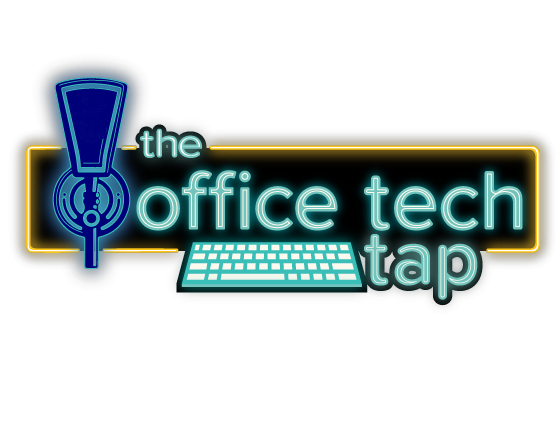Deep Dive – HP Study. Redefining Work Relationships with Office Technology

The first HP Work Relationship Index found that only 27% of knowledge workers currently have a healthy relationship with work.
In the rapidly evolving landscape of the modern workplace, understanding employee sentiments and the factors influencing them has never been more crucial. The HP Work Relationship Index, bolstered by insights from industry stalwarts like Hellenic Shipping News and Commercial Integrator, unveils a concerning trend of workforce discontent.
“There is a huge opportunity to strengthen the world’s relationship with work in ways that are both good for people and good for business…”
Enrique Lores, president and CEO, HP Inc.
As we delve deeper into this report, we’ll explore the nuances of this global work crisis, the pivotal role Office Technology plays in potentially alleviating these challenges, and the unique opportunities this presents for professionals in the Office Technology sales domain.
Through a comprehensive analysis, this report aims to shed light on the transformative solutions that can bridge the widening gap between employees and their work, fostering healthier, more fulfilling work relationships.
Executive Summary:
- Global Work Disconnect: The HP Work Relationship Index reveals a significant portion of the global workforce feels estranged from their work, with many contemplating departure due to dissatisfaction.
- Office Technology’s Role: Office Technology is pivotal in addressing this crisis. By focusing on fulfillment, leadership, and people-centricity, the right tools can foster genuine connections, transparent leadership, and a culture of respect and recognition.
- Sales Opportunity: For Office Technology sales professionals, this presents a unique chance to shift from traditional product pitches to solution-based narratives, emphasizing the transformative impact of technology on work relationships.
Introduction
The modern workplace is undergoing a seismic shift. The HP Work Relationship Index has unveiled a concerning trend: a significant portion of the global workforce feels disconnected from their work. This report delves into the intricate dynamics of this relationship and the transformative role Office Technology can play.
The Global Work Crisis:
The data is clear. Many employees feel a growing chasm between themselves and their work. The numbers are alarming:
- 71% consider leaving their jobs when they feel neutral about their relationship with work.
- This number jumps to 91% when they’re entirely unhappy.
Such feelings of disconnection and discontent have cascading effects on productivity, engagement, and overall well-being. But what’s causing this rift?
The Role of Office Technology:
Office Technology is not just about tools and software; it’s about crafting experiences. The HP study identified six core drivers for a healthy work relationship, and Office Technology intersects with many:
- Fulfillment: Employees are seeking more than just a paycheck. They want a genuine connection to their work. Collaborative tools, like shared workspaces and real-time editing, can foster a sense of involvement and value.
- Leadership: The leadership landscape is evolving. Transparent communication tools can bridge the gap between leaders and teams, fostering a culture of openness.
- People-centricity: Respect and recognition are paramount. Integrated HR solutions, feedback tools, and recognition platforms can ensure that employees feel valued.
- Skills: The modern workplace demands a diverse skill set. E-learning modules, training platforms, and skill development tools can help employees bridge the confidence gap.
- Tools: Inclusivity is the need of the hour. From ergonomic workstations to AI-driven software, the right tech can cater to a diverse workforce.
- Workspace: The traditional office is being redefined. Cloud solutions, remote access tools, and flexible work platforms make it possible for employees to work when and where they want.
The Impact on Work Relationships:
Office Technology is at the nexus of this transformation. The right tools can foster emotional intelligence, trust, and agency – values that employees deeply yearn for. For instance:
- Emotional Intelligence: Feedback tools and regular check-ins can ensure that employees feel heard and understood.
- Trust: Remote work tools signal to employees that the company trusts them to work independently.
- Agency: Flexibility tools give employees the agency to choose their work environment, fostering a sense of ownership.
The Sales Perspective:
For professionals in the Office Technology sales realm, this presents a unique opportunity. It’s not just about selling a product; it’s about providing a solution. The narrative is shifting from features to impact. Sales pitches can emphasize not just the capabilities of a product but its potential to redefine work relationships.
Recommendations for Office Tech Professionals:
- Understand the Pain Points: Engage with clients to understand their challenges. Is their workforce feeling disconnected? Are they struggling with retention?
- Position as a Solution Provider: Move beyond the traditional sales pitch. Highlight how Office Technology can address specific challenges and foster a healthier work relationship.
- Stay Updated: The Office Technology landscape is evolving rapidly. Stay updated with the latest tools and trends to provide the best solutions to your clients.
- Craft Experiences: Remember, it’s not just about the tools. It’s about the experiences they can craft. Can a collaborative tool foster team bonding? Can a feedback platform boost morale?
- Engage and Educate: Engage with your clients. Offer workshops, webinars, and training sessions to help them get the most out of the tools.
It’s evident that the modern workplace is undergoing a significant transformation, with employees seeking more than just functional tools. They yearn for a holistic work environment that fosters emotional intelligence, trust, and agency.
Here’s how the right tech can play a pivotal role in meeting these desires:
- Emotional Intelligence:
• Feedback Tools: Platforms that allow regular check-ins and feedback can ensure that employees feel heard and understood. When employees can share their feelings, concerns, and ideas seamlessly, it fosters a sense of belonging and understanding.
• Collaborative Platforms: Tools that promote real-time collaboration, like shared workspaces and video conferencing, can help teams feel more connected, reducing feelings of isolation, especially in remote work settings. - Trust:
• Remote Work Tools: Providing employees with the tools they need to work remotely signals that the company trusts them to work independently. This trust can boost morale and productivity.
• Transparent Communication Tools: Platforms that promote transparent communication between leadership and teams can bridge gaps, fostering a culture of openness. When employees are kept in the loop and understand the bigger picture, it builds trust. - Agency:
• Flexibility Tools: Solutions that offer flexibility in terms of work hours and location give employees a sense of control over their work environment. This fosters a sense of ownership and agency.
• Customization and Personalization: Tools that allow employees to customize their workspaces or choose the applications and software that best suit their needs can make them feel valued and in control.
It’s clear that Office Technology isn’t just about efficiency; it’s about crafting experiences. The right tech can be the bridge that connects employees to their work, fostering the emotional intelligence, trust, and agency that a staggering 83% of employees deeply yearn for. In essence, as the workplace evolves, so too must the tools we use, ensuring they align with the holistic needs of the modern employee.
Conclusion:
The global work crisis is a wake-up call. But it’s also an opportunity. Office Technology has the potential to bridge the gap, fostering healthier, more fulfilling work relationships. For sales professionals, this is the moment to position themselves as solution providers, crafting experiences that transform the workplace.
For those in the Office Technology realm, the message is clear: Understand the challenges, offer solutions, and be the beacon that guides companies towards healthier work relationships. The future of work is here, and Office Technology is at its heart.
Research Sources: HP Press Release, Hellenic Shipping News, Commercial Integrator.
– Greg Walters, Head Writer



